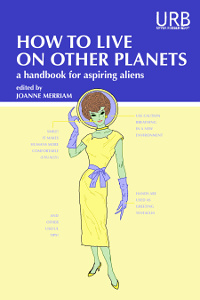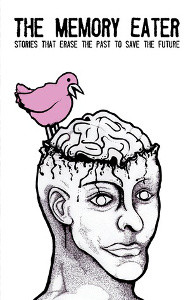 First Published: 16th February, 2015
First Published: 16th February, 2015
Genre: Science Fiction / Short Story Anthology
Authors: Dean Francis Alfar; Celia Lisset Alvarez; RJ Astruc; Lisa Bao; Pinckney Benedict; Lisa Bolekaja; Mary Buchinger; Zen Cho; Tina Connolly; Indrapramit Das; Tom Doyle; Peg Duthie; Tom Greene; Benjamin S. Grossberg; Minal Hajratwala; Julie Bloss Kelsey; Rose Lemberg; Ken Liu; Alex Dally MacFarlane; Anil Menon; Joanne Merriam; Mary Anne Mohanraj; Daniel José Older; Abbey Mei Otis; Sarah Pinsker; Elyss G. Punsalan; Benjamin Rosenbaum; Erica L. Satifka; Nisi Shawl; Lewis Shiner; Marge Simon; Sonya Taaffe; Bogi Takács; Bryan Thao Worra; Deborah Walker; Nick Wood
Available: Amazon.com | Amazon UK | Barnes & Noble
I have mixed feelings about the anthology, which aren’t anything to do with the individual stories and poems. It’s about the stated theme and how that theme is described. It starts with the preface of the anthology. I’m not a huge fan of describing invasion as immigration. It’s true it’s a form of migration, but that term is used to soften or dismiss what went down. When people say Europeans migrated to the Americas, it’s often a way to avoid addressing it as an invasion or having to talk about genocide. There’s also the underlying implication of all migrants being equal, from the invader who lives with the advantages that brings, to the refugee who is struggling to survive.
So the preface rubbed me the wrong way right from the start, and the question at the end didn’t seem to flow from the rest. When I think of migration, I don’t think: “Who do we become when we live with the unfamiliar?”
When I think about migration, my big questions are: “What leads people to migrate? What are the obstacles they face?” For me, colonialism, assimilation pressures, and politics are core issues of the theme. Questioning if things are a bit weird compared to home, and how you might change to deal with that, is another softening of the theme. The suggestion is immigration is mostly about dealing with small details like food being different or your accent seeming strange to locals.
Moving on to the stories, some stood out more than others, for better or worse. A favourite was “Zero Bar” (Tom Greene). It’s about someone who had her gene expression altered before birth, so that she looks whiter than the rest of her family. Though I live in a different place, and I’m at the other end of the scale (the darker one in a lighter family), some of the experiences resonated with mine. Like not knowing how to fill out diversity forms and other people always being sure they’re the expert in how a mixed race person should identify.
“Sea Changes” (Erica L. Satifka) deals with someone born in an undersea dome adjusting after being “rescued” and bought back to a surface city. It’s a short piece with a great atmosphere, that touches on the harm the system can do when it thinks it knows best.
There are a lot of other strong works in the mix. “muo-ka’s Child” (Indrapramit Das) explores how humans could have unintended ecological impacts on planets just by arriving. “The Four Generations of Chang E” (Zen Cho) is a story with moon rabbits and changing attitudes across generations. “The Tiny English-Hungarian Phrasebook For Visiting Extraterrestrials” (Bogi Takács) is a bit of humour.
Though there were many stories I liked, there was some I didn’t. “In Colors Everywhere” (Nisi Shawl) is one I really didn’t enjoy at all. It’s set on a penal colony planet, from the perspective of someone who has grown up on the planet. I would have avoided reading this one if I’d realised the crime most of the original residents committed was being trans, and that it was a story of how people in the colony will be raped and exploited, with no way to escape. I’ve liked other stories by this author, but this one was very much not my cup of tea.
There’s a difficulty here about whether I judge the anthology by what the title implies it’s about or by the stated intention in the preface. Neither one entirely works. Some of the stories are not about someone living with the unfamiliar, as people are living right where they were born, and sometimes where their parents have lived for generations. But some of the stories aren’t really science fiction immigration either. A tourist isn’t an immigrant even with the most open of definitions.
I’d say it’s a good anthology in terms of the quality of stories included. Many of the authors have experience of immigration, which shows in the handling of the theme. But I’m not so convinced the curation of the anthology was built on an understanding of the theme. More on hoping the authors would understand and it would fall into place. The declaration that it doesn’t contain polemics, and is instead meant to entertain, adds to my feeling on this. A lot of marginalised authors have faced having their work dismissed as being a polemic or message fiction, and that no one could possibly enjoy their work. Stating strongly that their work isn’t comes across as, “I know work by authors like this is usually dull message fiction, but these stories are different.” Which is rather a backhanded compliment.
That said, it will appeal to people who like to see a diversity in protagonists, and some of the themes surrounding immigration and colonialism explored. Many of the authors are not new to me, but are frequently underpromoted. This is a good place to see their work collected together.
[A copy of this book was received from the publisher for review purposes]
 First Published: 8th March, 2016
First Published: 8th March, 2016 First Published: 16th February, 2015
First Published: 16th February, 2015